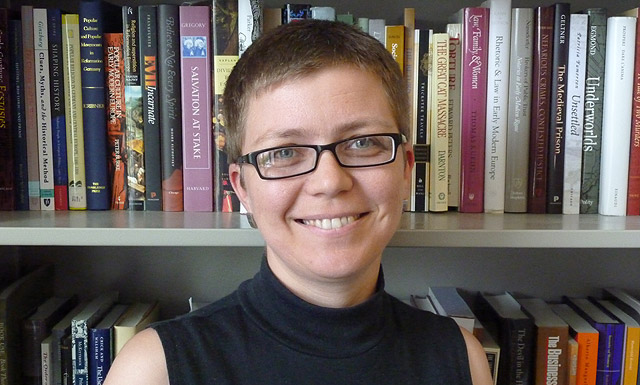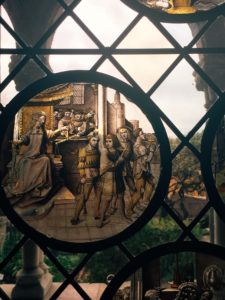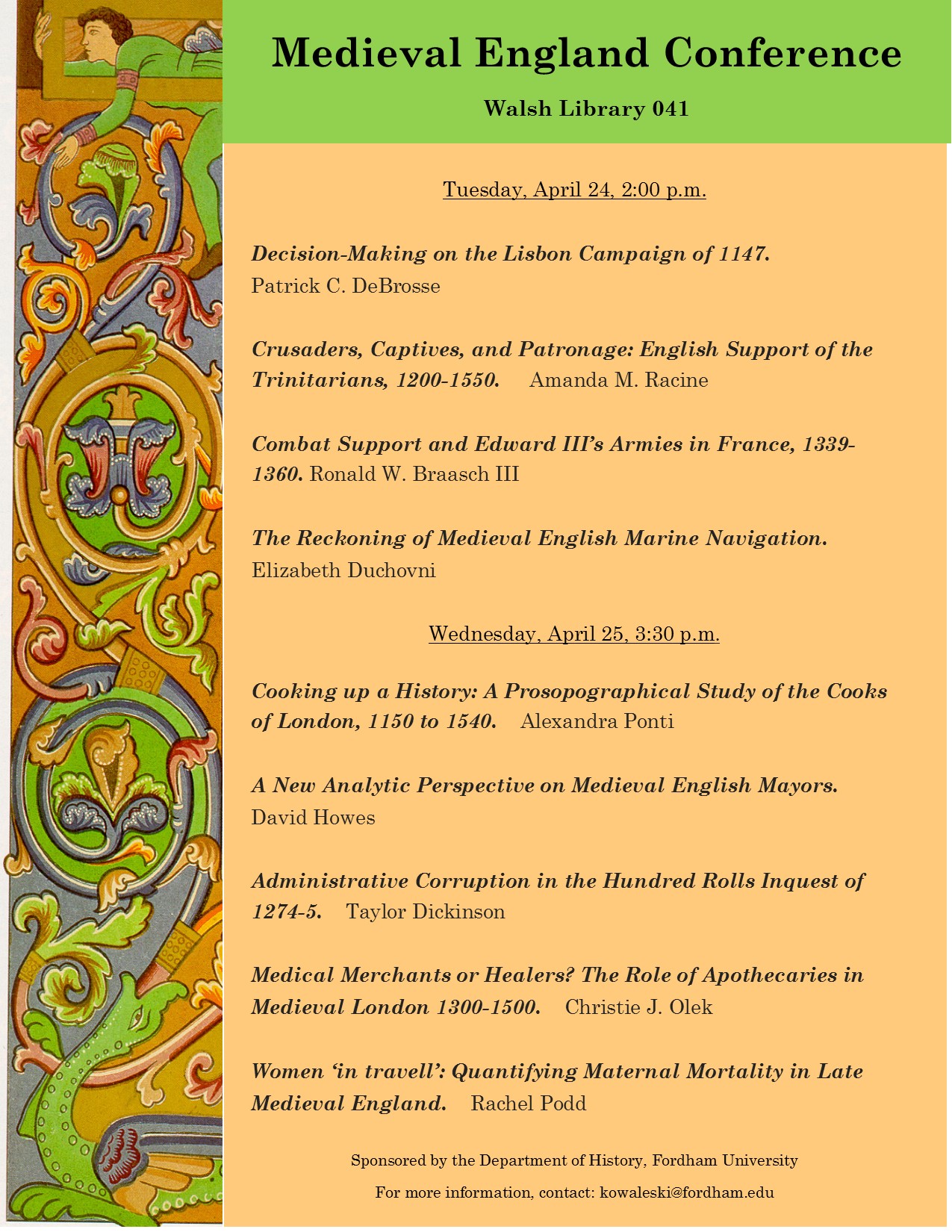Louisa Foroughi, a 2020 Ph.D. candidate, will be starting a tenure track job in Medieval and Early Modern History in the history department at Lafayette College (Eaton, PA) beginning in the 2020-21 academic year.
Working under Professor Maryanne Kowaleski, Louisa Foroughi specializes in the social and cultural history of late medieval England. Her dissertation, “What Makes a Yeoman? Status, Religion, and Material Culture in Later Medieval England,” explores identity construction among the English peasantry, c. 1348-1538. The yeomen were a group of affluent farmers who appear throughout English records from the early fifteenth century onward, but who have previously attracted little attention from medievalists. As Foroughi argues, the documentary records and manuscripts yeomen left behind provide rare insight into how medieval English peasants crafted and expressed their sense of self. Her analysis focuses on material culture, religion, office holding, and literacy as key aspects of yeoman identity, and integrates methods drawn from anthropology, archaeology, literary criticism, and religious studies in order to access the activities and mentalité of this little-studied group.
Foroughi is also eager to share her wide-ranging interests in gender studies; material culture theory; food history; medieval medicine; fiber arts; and household books and miscellanies with the students at Lafayette College. She can’t wait to join the faculty in August.
Congratulations, Louisa!





 On December 7, 2018, History Ph.D. candidate Jeffrey Doolittle gave a paper entitled “‘Efficassimum est Alexandrinum’: Drugs and Efficacy in Early Medieval Latin Pharmacology” at the “Drugs in the Medieval World, ca. 1050-ca. 1400” conference held at the Strand Campus of King’s College London. This two-day conference, organized by Dionysios Stathakopoulos and Petros Bouras-Vallianatos, featured papers on the transcultural transmission of information about materia medica (medical ingredients) during the middle ages and brought together some of the best scholars working on medical texts in Greek, Latin, Syriac, Hebrew, Arabic, Persian, Turkish, and Tibetan sources.
On December 7, 2018, History Ph.D. candidate Jeffrey Doolittle gave a paper entitled “‘Efficassimum est Alexandrinum’: Drugs and Efficacy in Early Medieval Latin Pharmacology” at the “Drugs in the Medieval World, ca. 1050-ca. 1400” conference held at the Strand Campus of King’s College London. This two-day conference, organized by Dionysios Stathakopoulos and Petros Bouras-Vallianatos, featured papers on the transcultural transmission of information about materia medica (medical ingredients) during the middle ages and brought together some of the best scholars working on medical texts in Greek, Latin, Syriac, Hebrew, Arabic, Persian, Turkish, and Tibetan sources.


 On April 24th and 25th, the History Department sponsored the Medieval England Conference that showcased the research done in the Graduate ProSeminar Course led by Dr. Maryanne Kowaleski. This conference included papers by members of the History Department, as well as the Center for Medieval Studies. Patrick DeBrosse, Rachel Podd, Amanda Racine, and Ron Braasch were the 3 doctoral and master’s students, respectively, that presented their research. See a list of all the presentations, as well as some pictures, below.
On April 24th and 25th, the History Department sponsored the Medieval England Conference that showcased the research done in the Graduate ProSeminar Course led by Dr. Maryanne Kowaleski. This conference included papers by members of the History Department, as well as the Center for Medieval Studies. Patrick DeBrosse, Rachel Podd, Amanda Racine, and Ron Braasch were the 3 doctoral and master’s students, respectively, that presented their research. See a list of all the presentations, as well as some pictures, below. 